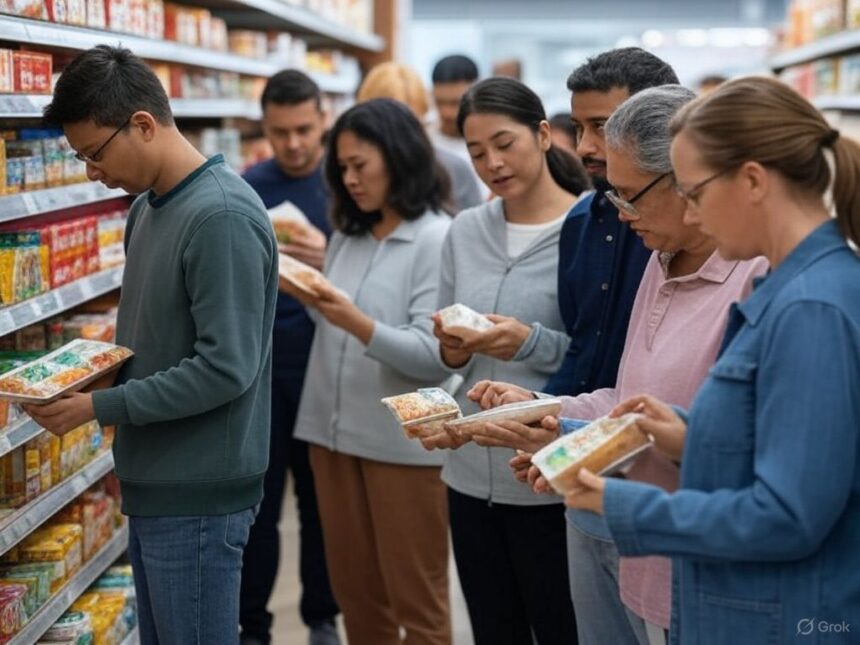Packaged foods have become an essential part of Ghana’s food scene, gracing the shelves of supermarkets and local stores alike. These convenient options cater to the fast-paced lifestyles of urban Ghanaians, offering a variety of imported delicacies and locally manufactured staples. However, concerns about food safety standards, questionable labelling practices, and regulatory oversight gaps are raising eyebrows and warrant a closer look.
The processed food market in Ghana has seen rapid growth in recent years, reshaping the nation’s dietary habits. Ready-to-eat meals, extended shelf life, and aggressive marketing have made products like instant noodles, canned goods, and powdered beverages household favorites. This shift reflects societal changes such as increased female workforce participation, higher disposable incomes, and the influence of global food trends. Supermarkets and online grocery platforms have further fueled this trend, making processed foods more accessible than ever.
Despite the convenience, several critical food safety issues threaten consumers in Ghana’s packaged food market. Expired goods circulation, counterfeit products, storage deficiencies, and hidden health risks are among the pressing concerns. The Food and Drugs Authority (FDA) serves as the primary regulator, overseeing product registration, market surveillance, and consumer education. While the FDA has made strides in banning hazardous products and enhancing labelling requirements, challenges remain, including smuggling of unregulated goods and limited monitoring capacity in the informal sector.
Empowering consumers with practical safety measures is crucial in mitigating risks. Scrutinizing labels, verifying authenticity, assessing packaging integrity, and choosing reputable outlets are simple yet effective steps consumers can take to protect themselves. Moving forward, Ghana is poised to enhance its food safety systems through government commitments to upgrade testing labs, stricter import controls, and technological solutions like blockchain for transparency and rapid testing kits for surveillance.
As Ghana navigates its food safety journey, the collaboration between government, consumer advocacy groups, and technological advancements holds the key to creating safer food systems for all. Stay informed, stay vigilant, and prioritize your health by making informed choices when it comes to packaged foods in Ghana.








